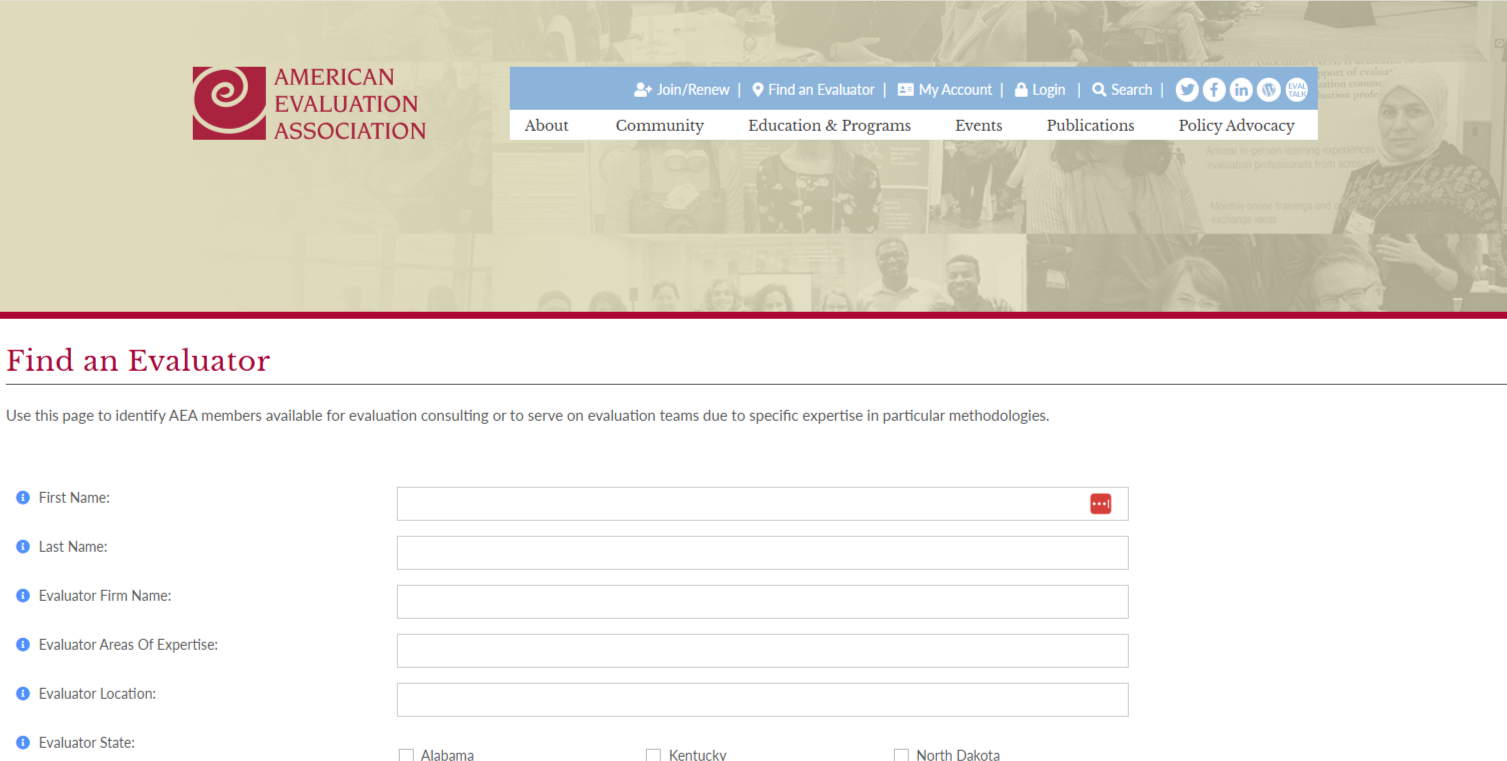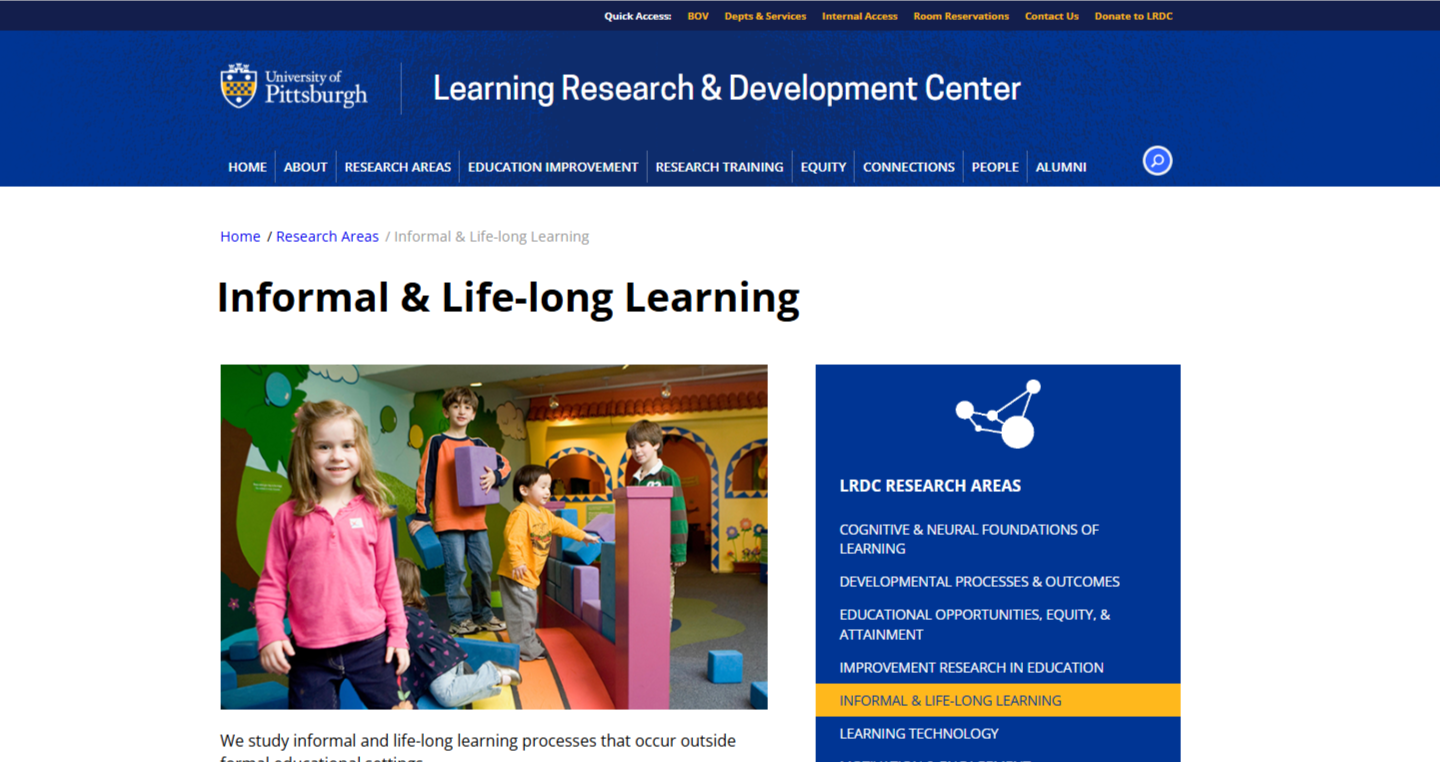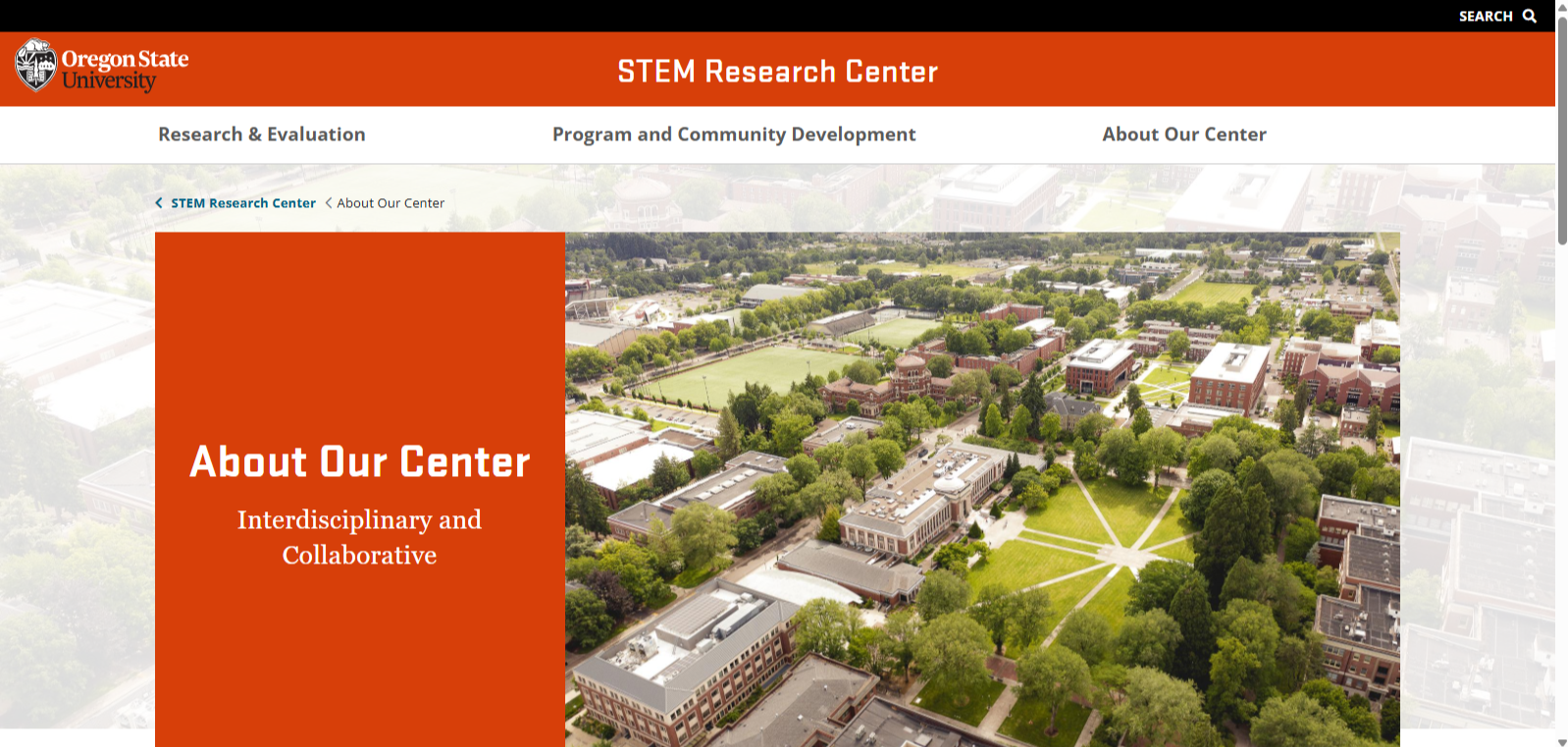Where to Find Your Next Evaluator
It’s federal proposals season and many folks are thinking about securing an evaluator for their proposal. I often get “cold calls” (usually emails) from folks looking to collaborate. When I receive one of these requests, I first ask for some preliminary information over email, then host an introductory call to see if the project is a good fit for both sides. If the fit is right, I put together some materials for a proposal. If it turns out not to be a good fit (this happens sometimes due to timing, scope, or desired expertise), I’m happy to recommend folks in my network who might be a better fit. Alternatively, I may provide suggestions on how to find other evaluators outside my network in a few ways. I’ll outline a few of them for you here now.
There are several ways to find evaluators suited for your needs. One of my most common recommendations is the American Evaluation Association’s Find an Evaluator tool. Here, you can search by city or state to find someone local, by area of expertise to find someone with the background you need, or by name or firm name if you’ve already got someone in mind.
Figure 1
After searching, you’ll be able to check out profiles (like mine, see figure 2) that list details about the person or firm, location, and offer contact information like website and email address.
Figure 2
Another strategy is to contact local universities that may offer evaluation services. University of Pittsburgh (my alma mater), for example, is a leader in informal learning and has multiple related labs and research areas. Sometimes academics at these universities will offer contract evaluation services. Or, they might be able to recommend some of their past students or colleagues to do the work.
Figure 3
Another awesome example of informal learning in universities is Oregon State University’s STEM Research Center. The folks there work on all kinds of STEM learning research and evaluation projects, including many in the informal learning spaces.
Figure 4
I’d recommend finding organizations that have specific expertise in your area (likely STEM education, outreach, or informal STEM learning) rather than generalists. Many universities have research and evaluation services for contract services, but few specialize in these spaces.
A final recommendation is to post an RFP on the American Evaluation Association’s Career Center website. While this does cost money for non-members, you’re able to search resumes and solicit proposals from the huge AEA community. Literally, letting qualified candidates come to you.
Figure 5
Speaking for myself and many of my peers, this is one of the top ways that external evaluators find new opportunities.
And, if all else fails, take to your network! Email colleagues looking for word-of-mouth referrals, check out LinkedIn, and consider folks you’ve used in the past but haven’t connected with in a few years. Word of mouth and repeat business are a few of the main ways I find my work, and, like me, many evaluators are happy to help in your search, even if they are personally not a good fit. You’ve just got to get the word out there!
We hope you enjoyed this article! If you’d like to see more content like this as it comes out, subscribe to our newsletter Insights & Opportunities. Subscribers get first access to our blog posts, as well as Improved Insights updates and our 60-Second Suggestions. Join us!







